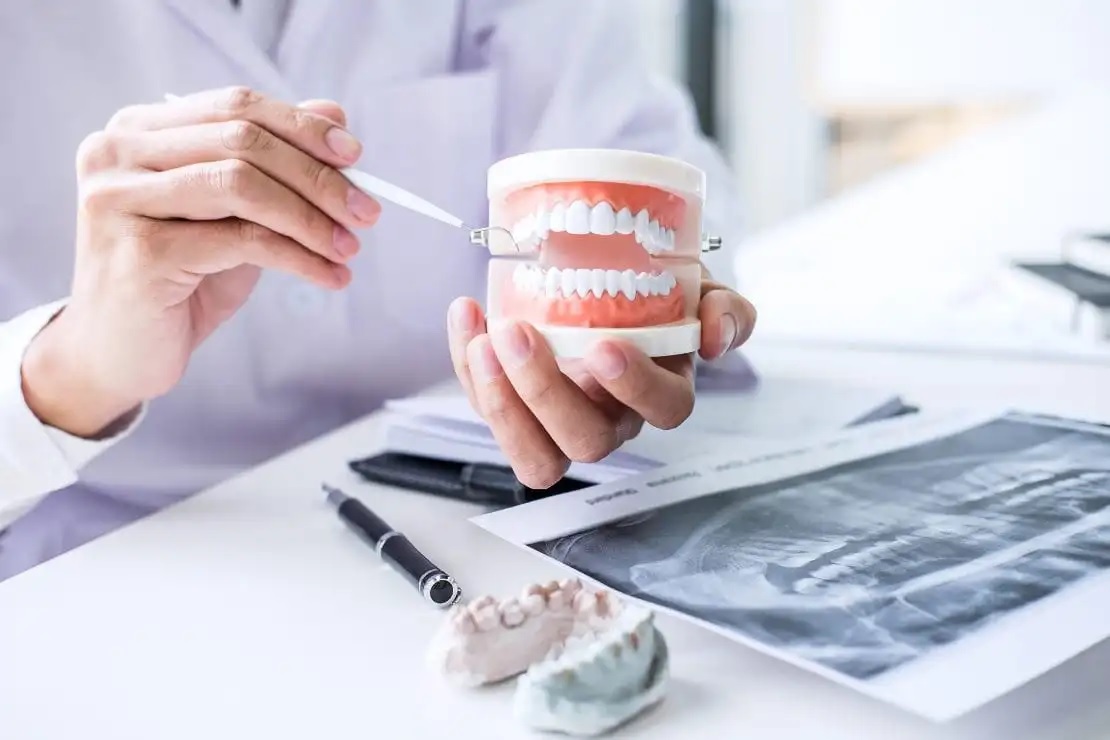Open Hours
Mon - Thur: 8am - 6pm
Fri: 8am - 4pm
Sat: By Appointment Only
Fri: 8am - 4pm
Sat: By Appointment Only

Your teeth are meant to last forever, but that’s not always how it turns out. In fact, more than 120 million people in America are missing at least one tooth. The good news is that you don’t need to live with that gap for the rest of your life.
Whether you’re missing one tooth or ten teeth, dental implants can transform your smile and keep your remaining teeth safe and healthy. Here’s everything you need to know about this “Gold Standard” for tooth replacement.
There’s not a single “perfect” type of dental implant patient, but all men and women who receive dental implants need to have at least these three qualities.
Getting implants isn’t just about your teeth; it’s about your underlying jaw bone and its ability to hold implants in place. Implants can only be placed if your jaw bone is dense enough to hold and fuse with the titanium implant screw. If you don’t have enough bone density currently, you may have the option to undergo bone grafting to regrow enough bone for dental implants.
If you have unhealthy gums or show signs of periodontal disease, you may not qualify for the implant procedure immediately. You can expect to undergo comprehensive treatment plans like root scaling and planing or laser gum therapy to improve your gum health and make implants a viable option.
There are other health factors that could prevent you from getting implants. Certain risk factors prevent patients from receiving implants because it’s too dangerous or likely to fail. Heavy smokers, pregnant women, children, people with chronic diseases, and people taking steroids may not be candidates for implants. Fortunately, it’s possible for you to adjust your lifestyle habits in order to make dental implants an option as you pursue lasting oral health.
Dental implants aren’t real teeth, so they’re not vulnerable to cavities and decay. But this doesn’t mean you can throw your toothbrush!
Your implants are only as healthy as the gum tissue surrounding them. If you neglect to brush and floss, bacteria will accumulate, infect the gums, and damage your implants. This is called peri-implantitis, and it can result in the loss of the bone that supports the implant. If not treated and resolved quickly, the implant will fail.
Overall, caring for your implants can stay simple and effective:
Dental implants are considered the Gold Standard in tooth replacement for a good reason: they transform lives. There are many , including these three.
Even just one lost tooth can affect pronunciation and chewing. Implants function like real teeth so that you can chew and talk without any hesitation. Since they are firmly and permanently fused with your jaw bone, dental implants never wiggle or slip. You can rely on them just like natural teeth to chew a steak or sing your favorite song.
Replacing your missing teeth is important for more than aesthetic and functional reasons. Each tooth in your mouth plays the important role of stimulating and strengthening underlying bone. When you lose a tooth, you lose the ability to protect healthy bone in that area.
Dental implants are able to replace the tooth’s root system to continue stimulating the jawbone. They restore the support that the jawbone needs, stimulate further bone growth, and prevent future bone loss. This is the only way to prevent bone loss over time.
The most obvious problem created by tooth loss is your incomplete smile. Whether you lose your front teeth or bottom molar, you will feel self-conscious smiling and talking to others. Fortunately, implants replace your missing teeth to create a full, whole smile once again. Since they look natural and realistic, nobody will even suspect that tooth loss was once a problem for you.
A dental implant is an artificial tooth designed to look exactly like a natural tooth that fits perfectly in your mouth. It’s composed of three individual pieces that fit together: the screw, abutment, and crown.
The implant itself is a titanium screw placed deep into your gum tissue. Over the span of a few weeks, it fuses permanently with your jawbone to replace missing tooth roots. This stimulation also supports the jaw bone and reinforces a sturdy base for the lower half of the implant.
An abutment sits on the titanium screw to connect the screw and your custom-made crown. Since the implant’s crown is the portion seen and felt, it’s customized to recreate the appearance and function of a real tooth.
Dental implants aren’t offered by every general dentist, so make sure you find a dentist that specializes in dental implants and full-mouth reconstruction. Dr. Anna Accopian, the experienced Glendale oral surgeon at North Brand Dental, uses the latest digital technology to ensure her patients safely and permanently restore their smiles with dental implants.
Make an appointment with North Brand Dental today to learn more about the dental implant process and being the journey to a truly life-changing procedure.
Glendale Office
620 E. Glenoaks Blvd.,
Suite B Glendale, CA 91207
Phone : +1-818-244-7215
E-mail : smile@northbranddental.com
Moorpark Office
484 E. Los Angeles Ave #210
Moorpark, CA 93021
Phone : +1-805-532-1101
E-mail : drg@dentalsmilesstudio.com
Opening hours
Mon – Thur: 8am – 6pm
Fri: 8am – 4pm
Sat: By Appointment Only
Privacy Policy
Terms and Conditions